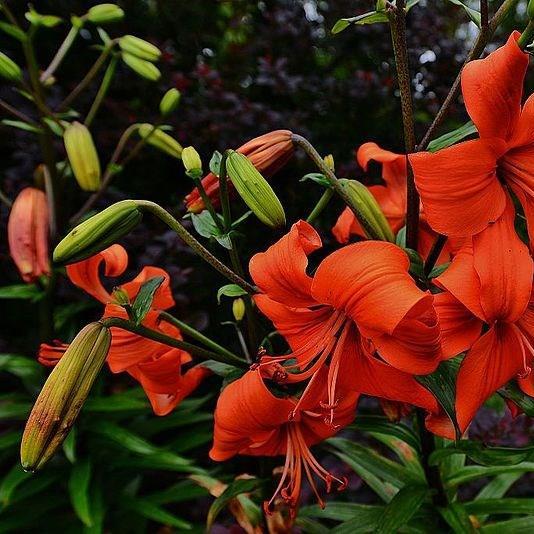
Hemerocallis
Daylily
Clump-forming perennial plant with spikes of flowers each of which lasts no more than 24 hours (hence the common name). The flowers consist of 3 petals & sepals, with a midrib of the same, or a contrasting colour. Colours are most commonly reds, oranges, yellows or pinks.
Contributed by @Tulip
-
Full sun to partial shade
-
Occasional watering
-
Full Frost Hardy: 5F (-15°C)
-
Moist and fertile
Common name
Daylily
Latin name
Hemerocallis
type
Perennial
family
Asphodelaceae
ph
5.5 - 7.5 Acid - Neutral
Plant & bloom calendar
-
Best time to plant
-
When the plant will bloom
full grown dimensions
 1.00 M
1.00 M
1.00 M
1.00 M
Hemerocallis
Clump-forming perennial plant with spikes of flowers each of which lasts no more than 24 hours (hence the common name). The flowers consist of 3 petals & sepals, with a midrib of the same, or a contrasting colour. Colours are most commonly reds, oranges, yellows or pinks.
Flowering
From Early Summer TO Late Summer
Flower colours can be anything other than white or blue, but most commonly reds, oranges, yellows or pinks. Flowers open daily, each lasting 24 hours.
Planting out (container grown plants)
From Early Spring TO Mid Autumn
Plant out container grown plants in Spring or mid Autumn
Propagating
From Mid Autumn TO Late Autumn
Clumps can be divided, plants can be grown from seed (colours will not necessarily come true with this method of propagating), or the little side-shoots can be taken off and planted in pots.



























